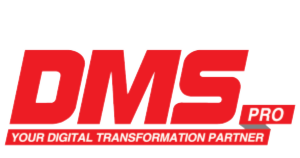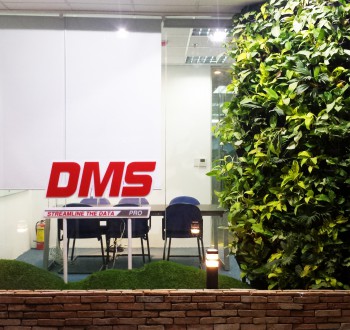- 08-01-2018
- Category: Press releases
Distribution Management System software, or DMS software is no longer a foreign concept to manufacturers and distributors in Vietnam. The DMS market is witnessing increasingly heated competition with a bewildering array of DMS solutions built on advanced technological platforms. Currently, not only large enterprises with complicated and distinct sales and distribution models, but medium-sized companies or those recently establishing their distribution system can also implement DMS.
To choose the most suitable Distribution Management System (DMS) software that yields the highest return on investment, businesses must not overlook these 5 core factors:
 5 handy tips that help you select the most effective Distribution Management software (DMS)
5 handy tips that help you select the most effective Distribution Management software (DMS)
- Integration
This is the DMS software’s ability to be readily integrated into common administration systems at the Head Office, such as enterprise resource planning (ERP), customer relationship management (CRM), or human resources system (HRS) software etc., and to be simultaneously connected to the distributors’ systems themselves.
Integration also points to the transfer of data from other systems previously deployed within the organization. For instance, if a company using one accounting software would like to manage synchronized data entirely with DMS, they must be concerned about whether such distribution management system software facilitates the import of all order history into the new system.
Besides, the crucial role of distributing partners cannot be taken for granted, especially distributors who run their own management software. Normally large-scale distributors with a diverse range of distributed products only wish to integrate part of the product lines that they are committed to a certain manufacturer. The DMS system needs to satisfy this essential requirement.
- Security
Enterprises should opt for DMS software that meets stringent international security standards in order to prevent the abuse and loss of sensitive commercial data. These security standards consist of extensive basic and advanced security features such as secured log-ins, automatic session timeouts, and appropriate user authorization etc. Particularly speaking, software built on world-class ERP platforms like SAP Business One (Germany) or Acumatica (USA) offers outstanding benefits thanks to their powerful, smart, and deep security measures.
 The security of distribution management system software helps protect business data
The security of distribution management system software helps protect business data
From a commercial standpoint, user authorization security has drawn growing attention from manufacturing and distributing businesses. Three most noticeable types of authorization are:
- The DMS software serves hundreds or even thousands of users from sales representatives, distributors’ accountants to sales supervisors and company’s management personnel. As a result, DMS must authorize users accurately based on their levels and functions; each user in the organization can only view certain information and perform predefined tasks within an assigned scope of authority. For example: Staff A is authorized to execute order forms, while only Staff B can process returns orders.
- Protected sales tools: the rights to use each mobile device (a smartphone or tablet) are only granted to one specific salesman, and other users are not allowed access without permission. In case such mobile devices go missing when the sales staff takes care of retail outlets, the company needs to be able to lock the DMS application from afar immediately.
- Some manufacturers operate under the Parent – Subsidiary In fact, subsidiaries may implement separate promotion schemes even though they all belong to a common campaign designed by the parent company, and of course subsidiaries would not want their business data to be “overlapped” with one another. How does the DMS software support proper authorization for each of the subsidiaries in this scenario?
- Compatibility
Compatibility determines which distribution management software will be most convenient to implement, without presenting difficulties in terms of operation systems or hardware.
DMS usually has two components: the back-end part for manufacturers and distributors; the front-end part for sales representatives in the field.
Regarding the back-end part, enterprises always favor the web-based form (running on web environments) because management just have to access DMS via web on any operating system that supports web browsers to view business reports in a real time manner. They do not need to install any other supplementary tool or software.
Simultaneously, since the front-end part will be integrated on the sales force’s mobile devices, it is of vital importance to check the DMS application’s “multi-screen” capability – does it function well on different screen sizes like 4″, 7″, 12″ etc.?
 The DMS software must ensure compatibility with different operating systems and hardware
The DMS software must ensure compatibility with different operating systems and hardware
- Flexibility
To contribute to effective distribution management, the DMS software usually comes with standard functions supplied by the developers. However, it must also be flexibly customized based on users’ practical manufacturing and distribution circumstances. Below are a few cases worth considering:
- Vietnam’s retail industry is characterized by diverse and complicated promotion schemes. How well can the DMS solution help manufacturers and distributors define and calculate accurately several promotional programs at the same time, such as product gifts, vouchers or discounts given upon purchase etc.?
- Not all sales outlets can guarantee stable internet connectivity. Consequently, the distribution management software needs to enable salesmen to utilize their mobile devices even in the offline status, and offers an easy mechanism to synchronize data as soon as the internet is live again
- Many DMS providers tend to make available standard management reporting forms in the DMS solution. But what if the company wants to add/remove reporting criteria, or even to log in and create business reports at their own will?
In addition, the DMS software should empower enterprises to adapt swiftly to changes in the distribution channels.
Let’s imagine: Distributor X is managing 800 sales outlets, but now X is no longer part of the distribution system. Does the manufacturer have to manually transfer data related to these 800 outlets to another distributor – including countless information on accounts payable, promotions, display, and reward programs? The DMS solution ought to support users to tackle distribution challenges as simply as possible, instead of requiring cumbersome and time-consuming steps.
- Scalability
Scalability refers to the ability of the system to maintain stable performance, even though the company alters its scale of sales and distribution management.
As an illustration – If the sales force has 10, 100 or 1.000 staff; the number of distributors is 10, 50 or 200; or businesses suddenly surge during the day, will the overall efficiency be negatively impacted? Each time there is a change to the scale of operations, how much does it cost the manufacturer to upgrade their DMS system accordingly?
The Distribution Management System (DMS) software on cloud computing technology (Cloud DMS) is continuously rising in demand, thanks to the system being capable of automatically “scaling” itself as per traffic flows, thereby saving significant time and operating expenses. In this respect, other distribution management solutions on the market are yet to live up to the standards.
To apply DMS effectively and maximize return on investment (ROI), it is advisable to put the DMS “piece” in the overall business strategy “jigsaw”, both in short and long terms. The “little costs – instant results” mindset sometimes may lead to risks and wasted opportunities, should the company fail to contemplate far-sighted measures and long-lasting benefits of developing the distribution system, as well as choosing the RIGHT distribution management software.
- Register now for a FREE demo of Distribution Management System (DMS) software from DMSpro: https://dmspro.vn/en/send-request-product-demo/
- Hotline: (+84) 8686 2 8686
- Email: info@dmspro.vn
 Your Distribution Management Solutions
Your Distribution Management Solutions

